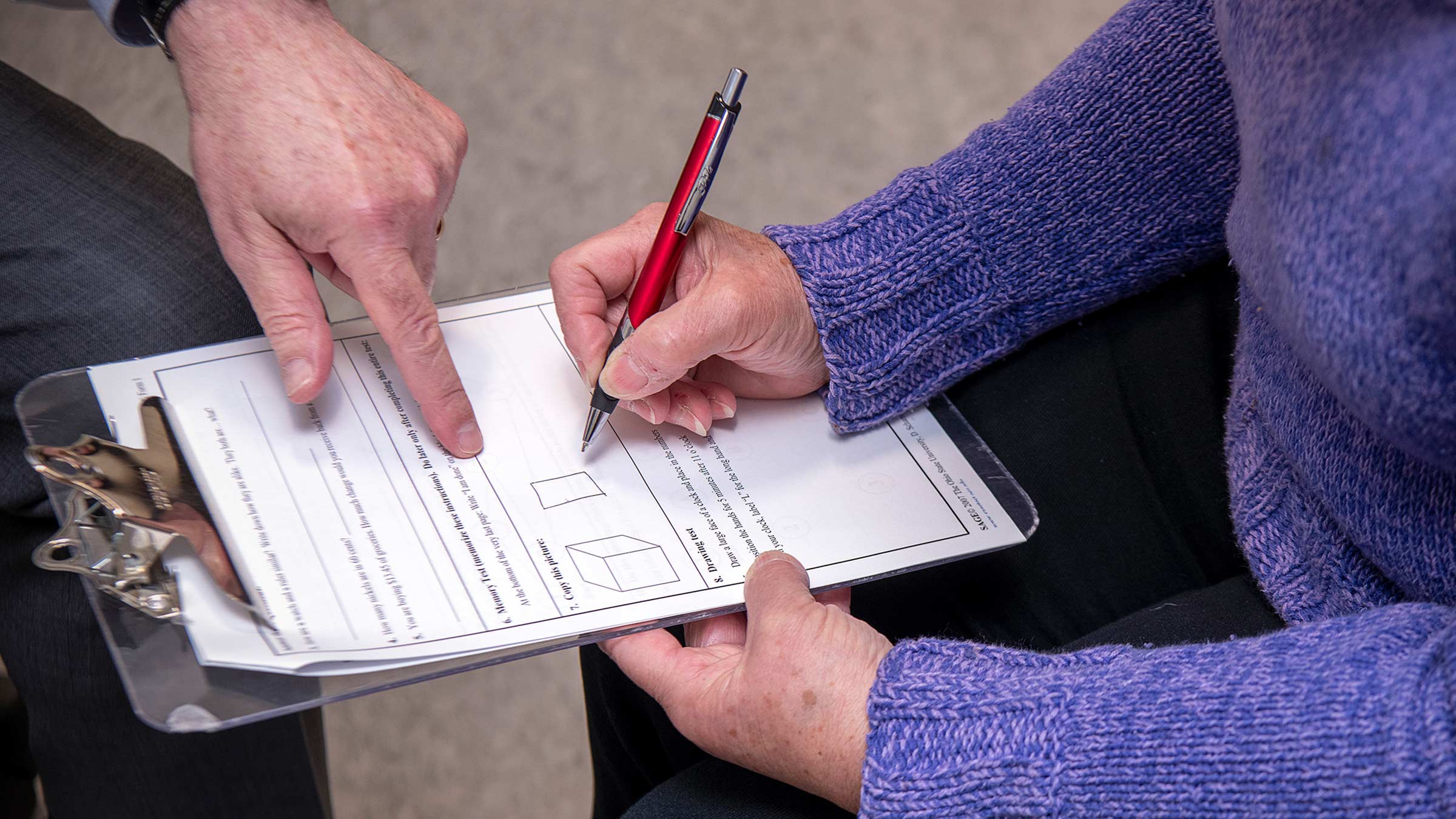Chances are good you’re here because at least one of your parents is in decline and you’re looking for information and resources to help them.
But maybe your parent seems to basically be okay, though you’re beginning to wonder if their decline has begun. Or, perhaps you’ve even got questions about your own cognition.
Well, thanks to Dr. Douglas Scharre, MD, and his team, there’s a home test you can give your parent (or yourself) which can detect early signs of cognitive, memory, or thinking impairment. It’s called the Self-Administered Gerocognitive Exam (SAGE). You simply print the test out at home, have your parent take it in ink, then bring it to their primary care physician for evaluation. There’s no time limit on the test, though it should take around 15 minutes. Your PCP may determine that further testing is needed, or, if your parent is fine, the results can be a baseline for future testing.
Here’s more about Dr. Scharre, who believes that early detection is vital to treating memory disorders including Alzheimer’s.
Now, we would never advise anything other than following the exact directions for the SAGE. However, the guidance for doctors on interpreting the results is right there on the main page, and frankly you don’t need to be an MD to understand. (Here’s how to score the test, and here’s what the scores mean). By all means take the completed tests to your parent’s doctor if you can, but doing your own preview of their performance (or yours) may make sense for most caregivers.



